Where Life Comes From

Rav Shmuel Kamenetsky — the address when it comes to the challenges of the yeshivah world — gives words of chizuk during surreal times
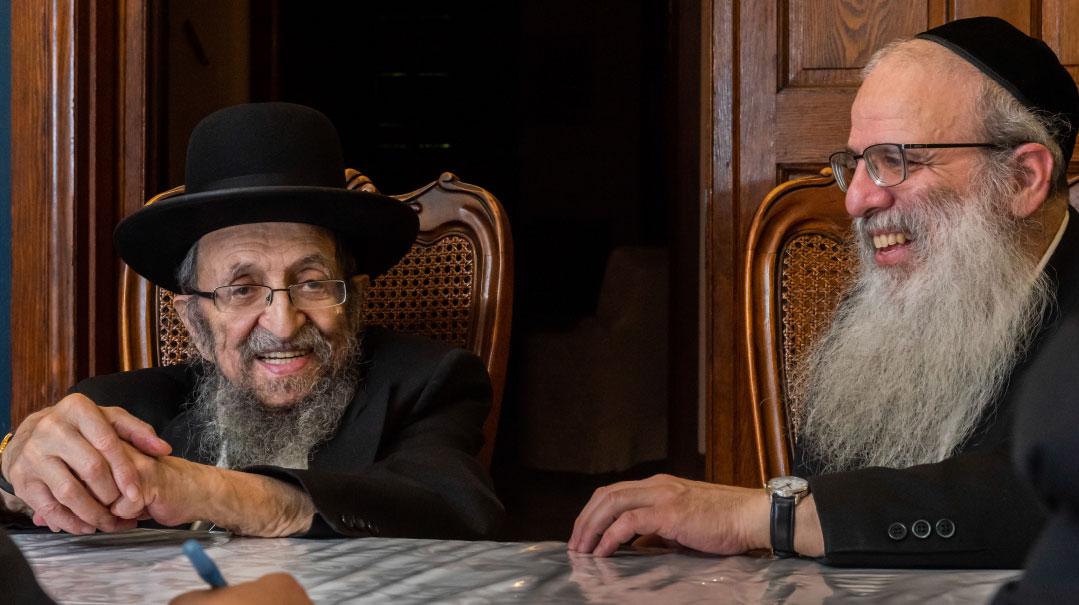
Photos: Meir Haltovsky
It wasn’t so long ago, just about seven months to the day.
Nothing from that world makes sense anymore — not the crowds or dancing huddles or carefree atmosphere — but the words endure. The outer trappings of the event have fallen away, but the core has become more relevant than ever.
On January 1 the world celebrated; by April 1, the world had near imploded. And the promises invoked on that cold winter day were put to the test.
In his hadran at the Siyum HaShas in Metlife Stadium, Rav Shmuel Kamenetsky paused for a moment when reciting the names of the ten sons of Rav Pappa, part of the hadran text. “They all became gedolei Torah,” the Philadelphia Rosh Yeshivah said. “We learn from here that you have to keep going on and going on, again and again.”
He teared up — out of character, for those who know him — when pleading that the Torah not diminish or wane, that it live on in our mouths and the mouths of our children.
Shelo yamush haTorah mipicha.
Now, on a summer morning more than half a year later, he sits across from me at the dining room table at the home of his son, Rav Sholom, and picks up where he left off in the winter.
That the Torah not diminish or wane.
Keep the Priorities Straight
Recent months have left the energetic 95-year-old rosh yeshivah a bit weary. The phone in his home — active in regular time — has been unyielding, and the questions, always important, were suddenly questions of pikuach nefesh.
Five months after Covid-19 slid into reality and parked there like a massive truck blocking traffic in every direction, Rav Shmuel Kamenetsky is able to take a step back and analyze, to discuss what happened and what is happening, how we reacted and how we might have reacted.
In history, says the Rosh Yeshivah, we never faced a situation like this, virtually every beis medrash on earth closed, the sound of talmud Torah b’rabbim stilled.
Still, there is much to be proud of: the on-the-fly reaction of parents and teachers, the willingness and resilience of children, the communities’ respect for the law and guidelines.
“But,” says the Rosh Yeshivah, “we need to remind ourselves what the priority is, what it always was.”
His face doesn’t give many clues. The trademark smile is there, but now it’s shaded by what appears to be a shadow of pain.
“The beis medrash is the best place to be. We have to live with this in mind and then make decisions.”
Rav Sholom Kamenetsky, the Rosh Yeshivah’s son, himself a rosh yeshivah in Philadelphia and respected talmid chacham in his own right, qualifies his father’s approach.
“There are halachos of pikuach nefesh and there are halachos of safek pikuach nefesh. There are nafka minos — differences between older people and younger people. Everything is in Shulchan Aruch, and once poskim get the relevant facts from doctors, they can work through the fog. The reason that didn’t happen here was because the information kept changing, the doctors themselves weren’t really certain.”
And it’s in this area that Rav Shmuel wishes to give chizuk. Breathing is life, and Torah is life.
The seamless, perfect picture that Rav Sholom paints — doctors explain, rabbanim rule, people follow — may not seem realistic during such murky times. But in fact there were mosdos associated with the Philadelphia Rosh Yeshivah that remained open — within the guidelines, with full social distancing, permits, and doctors’ approval — until near the end of the winter zeman, and reopened again after Pesach with similar restrictions.
One kollel opened in an empty Lakewood school building, each classroom holding less than ten men careful about maintaining social distance. A large Lakewood kollel moved 35 families to the Camp Achim campgrounds in the Catskills, where they quarantined together for seven weeks in less-than-deluxe conditions — the women working remotely while their husbands continued to learn Torah.
Rav Shmuel’s ability to balance both priorities — the mandate to protect one’s health and the mandate to keep on learning — was evident. For example, he advised the roshei kollel of Cheishek Shlomo to stay open until the end of the winter zeman. Then, in the middle of night seder one night, Rav Shmuel spoke to the two roshei kollel, Rav Asher Steinmetz and Rav Avrohom Yeshaya Appel. Since the Moetzes Gedolei HaTorah had ruled that all mosdos — shuls and yeshivos included — should shut down immediately based on updated health information, Rav Shmuel, who had previously instructed them to stay open, now wanted them to close.
Not in a day or two, and not in an hour. That moment, on the spot.
Passionate as the Rosh Yeshivah had been a week earlier about remaining open, he was equally adamant when it came to closing, pivoting on a dime when the situation called for it.
“At the beginning, some parents felt like, ‘It’s fine, the boys can learn at home too, Torah is Torah,’ ” remarks Rav Sholom, “but it’s not so. As long as we have a legal and medical heter to learn in yeshivah, we have an obligation to learn in yeshivah. Chazal praise Rabi Akiva, because he was makhil kehillos b’rabbim, he assembled people in public to learn Torah. He didn’t just throw in the towel and let them learn at home. That’s the means of transmitting Torah and that has to be the goal, once we can work our way through the noise and commotion. The media has its agenda too, and they cloud the issue. It’s not a simple process, but it’s what’s expected of us.”
And at times, it even calls for mesirus nefesh.
“For camps, we saw the outpouring of concern and emotion — and it was in place, camp is important,” says Rav Sholom, “we have to just make sure that our sensitivities are attuned enough that we see the value of Torah the same way.”
On His Shoulders
There was lots of confusion in the beginning. “In some circles,” says Rav Sholom, “safek pikuach nefesh became the same as pikuach nefesh — after all, we’re a people that cherishes life. But it’s not the same thing. You have to know the medical updates, of course, and respect the findings, but you can never lose sight of the goal.”
Was there a lack of leadership?
“It might have felt that way, but that wasn’t it,” says the Rosh Yeshivah. “Leaders also have to know what to say, and the nature of the virus is that no one really had clarity. The leaders didn’t really have a grasp on what we were facing,” Rav Shmuel says.
In allowing the massive marches over the early months of spring, protests and rallies in the streets of America, the government undermined its own message about the guidelines. “They’ve made it clear that there were exceptions, they issued permits for what they considered crucial, so it’s easy to understand why people got cynical, no?”
But our mindset, he reiterates, has to be one of really appreciating what it means to sit in the beis medrash and learn. That’s what sustains the world. It’s the answer. Then you have to make sure everything falls into place — the legal, the medical, the maris ayin, so many details. Yet you can’t just give up the goal. ”
For a moment, it sounds like the Rosh Yeshivah is negating the seriousness of COVID-19. But in fact, he well understands the realities of the virus.
Early on, a talmid called with a complicated question. As an operator of several nursing homes, he was being forced to accept residents who’d tested positive for the virus as they were released from hospitals that no longer wanted them. Despite the clear danger to their current residents and staff, the nursing homes were being given no choice.
Rav Shmuel told him unequivocally that to accept these patients was a form of retzichah, murder, since it put the other residents at serious risk. But then, on a conference call, the governor informed all nursing home operators that failure to accept the patients would mean losing their licenses.
The talmid called Rav Shmuel again. Lose your license, the Rosh Yeshivah ruled, but you can’t put your elderly residents in danger.
The nursing home operator listened to his rebbi.
Weeks later, he stood tall as the only major nursing home operator in the state of New Jersey who didn’t lose a single resident to Covid-19.
Crucial decisions facing the yeshivah world aren’t new to modern times. In the darkest years of the last century, Rav Chaim Ozer Grodzenski’s room, in Vilna, was the control room for life-and-death calculations regarding the survival of the olam hayeshivos. Because life was precious and Torah learning was precious and what is life without Torah, but what is Torah without life? He could see it all, so he could answer.
In the slump of Rav Shmuel’s shoulders, one sees a similar burden.
G-d is a Dirty Word
Rav Shmuel himself wasn’t spared from the virus.
“I felt shvach, weaker than usual. And of course, the Seder this year was very lonely without the children and eineklach. It went quicker.”
But it wasn’t the quickest Seder he’s ever experienced. One year, as a bochur in Lakewood, Rav Shmuel wasn’t able to get home to Toronto for Pesach (where Rav Yaakov was a rav from 1938–1945) because of bureaucratic issues, so he stayed in the home of the rosh yeshivah, Rav Aharon Kotler — his father’s close friend from their Slabodka years.
“Rav Aharon’s Seder was very quick. I also spent a Seder with Rav Ruderman [a cousin], when I learned in Baltimore, but that was more leibedig. He worried about kashrus in some of the homes, so he invited the bochurim to spend Yom Tov with him. It was a bigger crowd there,” Rav Shmuel remembers.
But technical queries about the Seder from a range of callers notwithstanding, the questions over the last few months were definitely weightier than usual.
The Rosh Yeshivah, known as someone who answers every single call, felt compelled to sometimes take the phone off the hook at night, simply so that he could rest a bit.
“I’ve never felt it proper to take my phone off the hook, because when someone gets a busy signal, then they have to call again. What right do I have to be matriarch someone to call again because it might have been a tirchah for me to answer the phone? So I always try to answer.”
I wonder why the Rosh Yeshivah doesn’t just get a gabbai to answer phone calls and coordinate appointments, so that it doesn’t have to be completely overwhelming.
The laughter, the humor in the gentle eyes, is reassuring. This is still Rav Shmuel.
“What, I don’t have enough problems? We have to create one more?”
The questions weren’t only about practical ramifications of the virus — minyan, schools, internet use, family visits and the like — but also about wider issues.
“I don’t remember a time when I got so many calls from people considering moving to Eretz Yisrael, not for ideological reasons alone, but simply because they feel it’s not safe here. Over the last few weeks, after the riots and unrest, I got calls from many yeshivishe families asking about it.”
And what did the Rosh Yeshivah say?
“If someone will have parnassah over there, and their children are either very young or have finished school, perhaps…but lav davka for security reasons, Eretz Yisrael is surrounded by millions of Arabs, safety isn’t a reason to leave America. But it’s certainly praiseworthy to live in Eretz Yisrael if it works for a family, for sure.”
Still, the situation in America worries the Rosh Yeshivah, that much is clear.
“You see the matzav, the anarchy… it’s frightening. G-d has become a dirty word in much of America, religion and religious institutions are their enemy — we need rachamei Shamayim. If Trump doesn’t win in November, it’s worrisome.”
I hear what seems to be an endorsement, and I push.
“Yes, I think people should vote for him. He’s done a good job. It’s hakaras hatov,” Rav Shmuel reiterates.
But what about the fact that the current president is sometimes less than a positive role model?
“That has nothing to do with politics,” Rav Shmuel is chuckling again. “That’s because he’s a gvir, a wealthy man. Ashir ya’aneh azus — wealthy, powerful people have a way of speaking and acting that is not refined. That’s not a reason not to vote for him.”
Staying Together
Rav Shmuel has suffered along with the losses over the past few months.
“Mir hubben farloren di Rebbe aleyn, we’ve lost the Rebbe himself,” he says and taps the table.
His lifelong friend and partner in so many holy campaigns, the Novominsker Rebbe, is no longer here.
For a moment, it appears the Rosh Yeshivah might shed a tear. His voice quavers. Di Rebbe aleyn.
Rav Shmuel is not a crier. His talmidim know that once a year, at Neilah, he breaks down when reciting the words “Yehi ratzon milfanecha shomeia kol b’chiyos — May it be Your will, hearer of our cries,” and even then, it’s to fulfill the opinion of poskim who rule that tears are necessary.
Like most of the details in Rav Shmuel’s life, there’s a cheshbon: His actions and habits are precise.
Perhaps to soften the mood, the Rosh Yeshivah takes me back to the time, long ago, when his young heart broke.
When he was ten years old, he left his hometown of Tzitavyan, Lithuania, where his father, Rav Yaakov, was the rav, to go learn in yeshivah. “In Tzitavyan, there wasn’t a real cheder, so the shoichet, his name was Luria, he taught all the boys. Ehr iz gevehn a gutte mensch — he was a good person. But it wasn’t a way to grow in Torah, so my parents sent me to learn in Shavel. I stayed at someone’s house there and went to cheder.”
He was only ten, and quite homesick. “I used to cry in the bed at night. When no one could see me or hear me, I let tears fall.
“So I trained myself during those months, I learned to control myself.” The Rosh Yeshivah smiles as he says this, as if it’s the most obvious thing in the world for a ten year old to make a decision like that and stick with it.
While other hosts offer an assortment of drinks or dried fruits, Rav Shmuel is offering himself — insight, memories, stories, a more meaningful way to satiate his guest.
When he was 12, he left Shavel for Slabodka, where he learned in a yeshivah ketanah — too young for the great Knesses Yisrael yeshivah, but old enough to appreciate its splendor. The teenage boy ate the Shabbos seudos in the home of his uncle, Rav Avraham Grodzinsky, the mashgiach of Slabodka.
Rav Shmuel, not prone to exaggeration, or even mild adornment, recalls, “His face shone on Shabbos. He would sit at the table like a prince.”
Rav Avraham — whose wife, Chasya, was a sister of Rebbetzin Ettil, Rav Shmuel Kamenetsky’s mother — would later have a major difference of opinion with his brother-in-law, Rav Yaakov.
Rav Yaakov, Rav Shmuel recounts, had been traveling in America on behalf of the Kovno Kollel, collecting money for his alma matter.
“The rabbanus in Tzitevyan wasn’t enough of a parnassah?” I ask.
“It wasn’t a parnassah bichlal, not even a bad parnassah,” the Rosh Yeshivah quips.
When Rav Yaakov came to a certain donor, he realized that the secretary in the Kovno Kollel office had adjusted the receipt from the previous year, inflating the amount so that the donor would match it.
“My father’s face turned white and he quit the job on the spot.”
What followed was a sojourn in Seattle, Washington, and then Toronto, Canada, where he served as rav.
“My father wanted us to join him, to have the family together, but my uncle felt that my brother Binyomin and I should stay back in Europe. In the end my father brought us over — he thought it would be best.”
That decision shaped Rav Shmuel’s consistent advice to parents until today: that children do better when they are at home, close to their parents. Of course, there are times when out-of-town yeshivos and seminaries are the best choice, but in general, families are meant to be together.
Rav Shmuel attended public high school in Toronto between the ages of 14–16. “There was an option of completing high school with vocational training, so I learned electricity. It was interesting.” He pauses, then says, “There was no electricity in Tzitevyan, so I had a big geshmak in seeing how a wire could transmit light.”
The man whose face, whose being, transmits light, says, “I thought maybe it would be a parnassah, it would come in handy.”
It was during those years that Rav Shmuel used the many free hours to start his journey through Shas — when he was 16, it continued under Rav Yaakov Yitzchok Ruderman in Baltimore, and by the time he was 18, Rav Aharon Kotler welcomed him in Lakewood.
I ask the Rosh Yeshivah if he often thinks about the children, the families of Tzitevyan that were lost, and his answer reflects his years of practicing mussar.
“A person who thinks about himself doesn’t think about others,” he sighs as he says this, as if reproaching himself for being too selfish.
Rav Sholom is quick to explain. “My father is takeh right. What he means is that he’s busy with ‘himself,’ his ‘ani,’ and his scope of self includes thousands of talmidim, large parts of Klal Yisrael, the yechidim who call him for advice — they are all part of him, and so he is busy with ‘himself.’ That’s what he means.”
At one point, the photographer’s lens pops off and falls to the floor. Before he can react, Rav Sholom is already there, picking it up off the floor.
“Did it break?” he asks with concern.
In his response, his posture as he bends over to help, one sees echoes of his father.
True Success
Going back into the beis medrash after the coronavirus receded, Rav Shmuel says, was thrilling.
“It was very special to go back in after being out for months. I came in after Shavuos, with the bochurim together, and I thought, Ribbono shel Olam, breng unz shoin aheim, bring us all home already.”
He speaks of the bochurim, those who have valiantly held on and those who are having trouble finding the energy to restart. “We made a seudas hoda’ah here, in yeshivah, just before Rosh Chodesh Av,” says Rav Sholom. “We don’t take it for granted.”
It’s the bochurim Rav Shmuel is addressing with this plea. He davens that America not face a second wave, but whatever will happen, he wants them to know who they are.
“It’s not an easy thing, but we were created to learn Torah. There are obligations, and one is mechuyav to follow the law. It’s a din to protect your health, of course. But once you take the precautions, there is no better refuah than sitting and learning Torah. That’s where life comes from.”
Rav Sholom gets up and returns a minute later carrying a handwritten letter from his zeide, Rav Yaakov.
For three and a half years, he learned under Rav Berel Soloveitchik in Brisk, never visiting home or even calling his parents or grandparents. Back then it was just letters, and each one was precious.
In one such letter, Rav Yaakov wrote to his grandson about a personal matter, then in a subsequent letter, he concluded with a piece of advice: Don’t ever confuse hatzlachah, success, with feelings of hatzlachah.
One might not feel the success, but it’s there.
Like all of Rav Yaakov’s Torah, the wisdom and depth endures. It seems to be a chorus written specially for the bochurim of today:
Bochurim, tayere bochurim, you who’ve clutched telephones and labored over shiur, who’ve connected with chavrusas you could not see, who held on to the Torah of yeshivah without the joy of being in yeshivah — you may be feeling hollow, like the past months were a time without growth. Yes, it was a strange time, and now that you’ve reached the end of this surreal zeman, the regular end-of-zeman euphoria and pride may not be there — but don’t confuse feelings of success with real success.
“You’ve done a heroic job of holding on to Torah, the sedorim and chavrusas, and that itself — trying — is success,” says Rav Sholom.
You triumphed, even if you might not feel it.
Rav Shmuel appreciates his son’s tzushtell, and he nods along.
“Don’t be nispa’el, don’t panic,” says the Rosh Yeshivah. “It’s a strange time. Just remember that the beis medrash is the best place to be. Remember that and you’ll be fine.”
And then, in response to nothing, he stares at me, as if ensuring I understand why I’m there.
“Sitting and learning is the greatest thing in the world.”
(Originally featured in Mishpacha, Issue 821)
Oops! We could not locate your form.


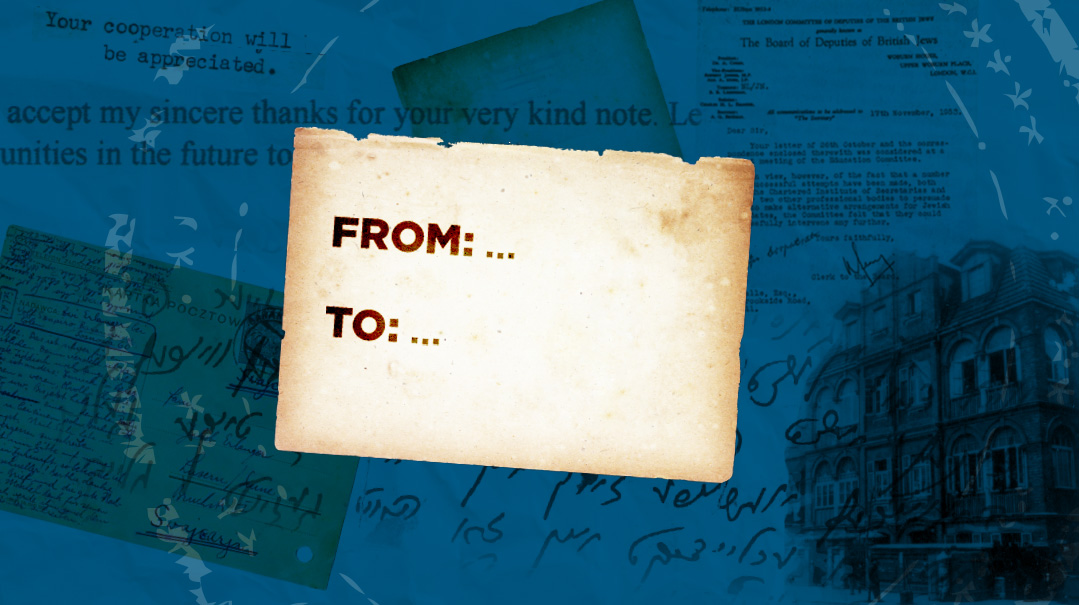
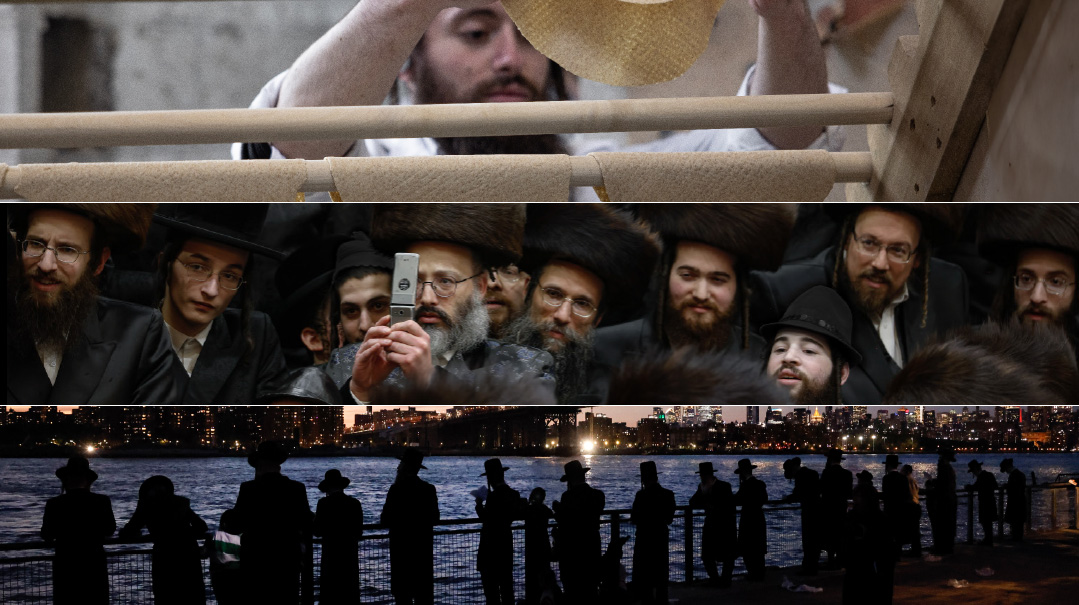
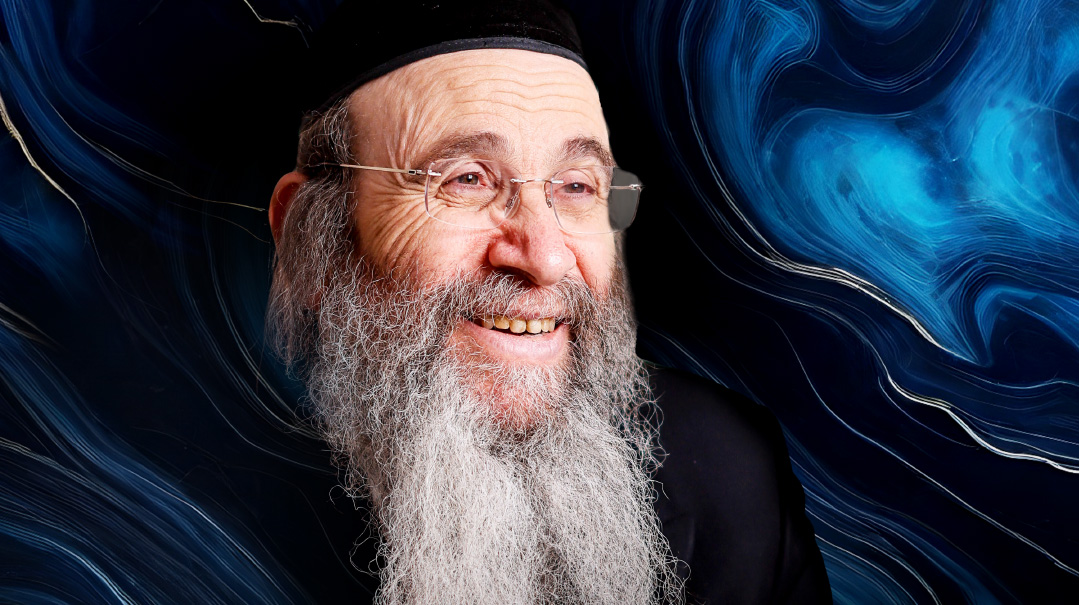
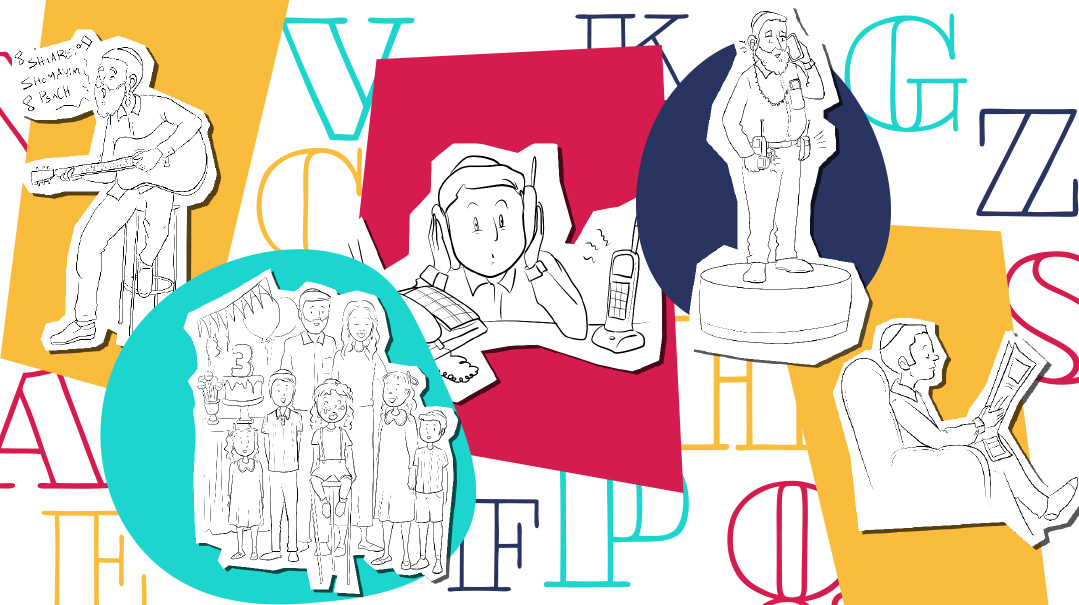

Comments (3)